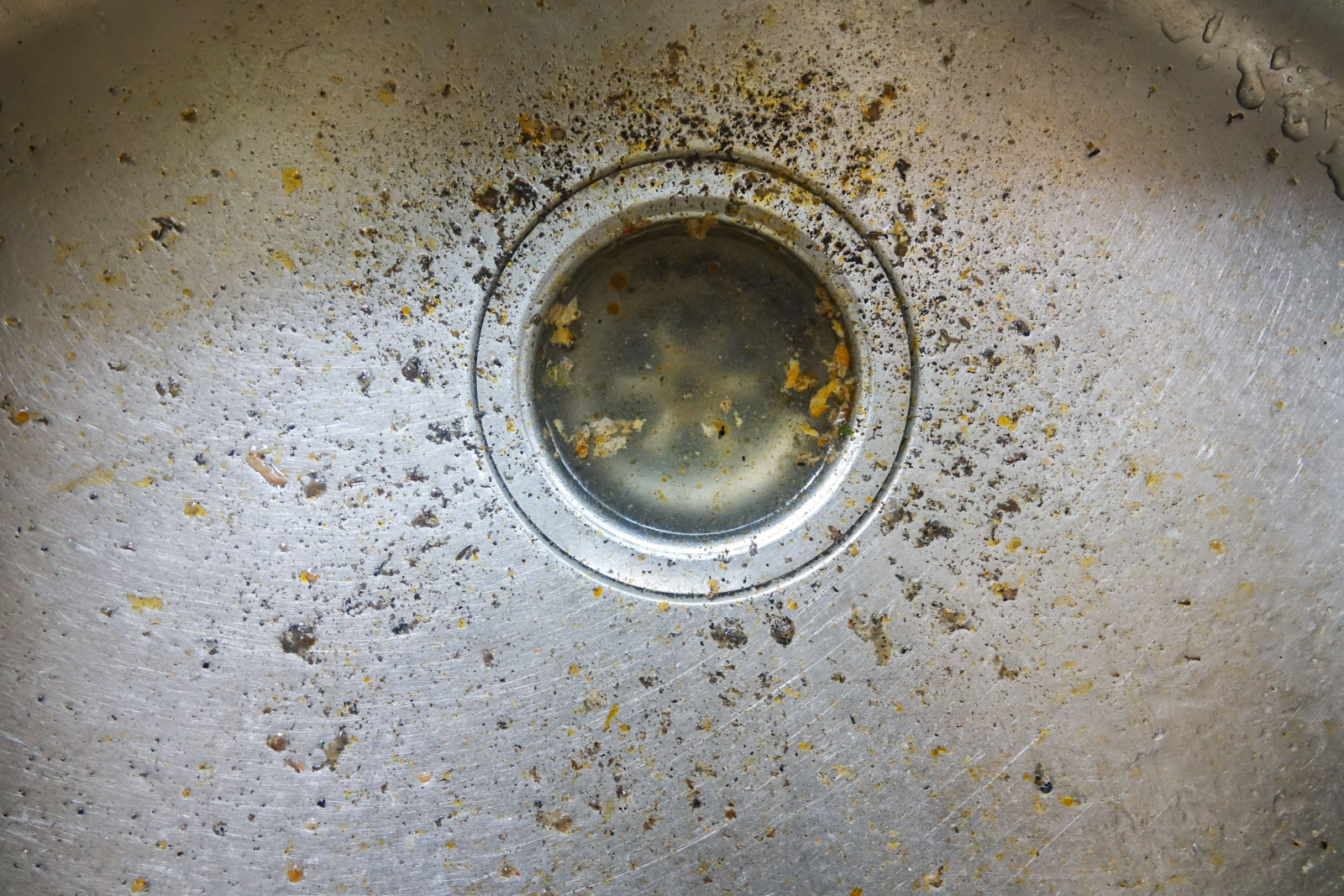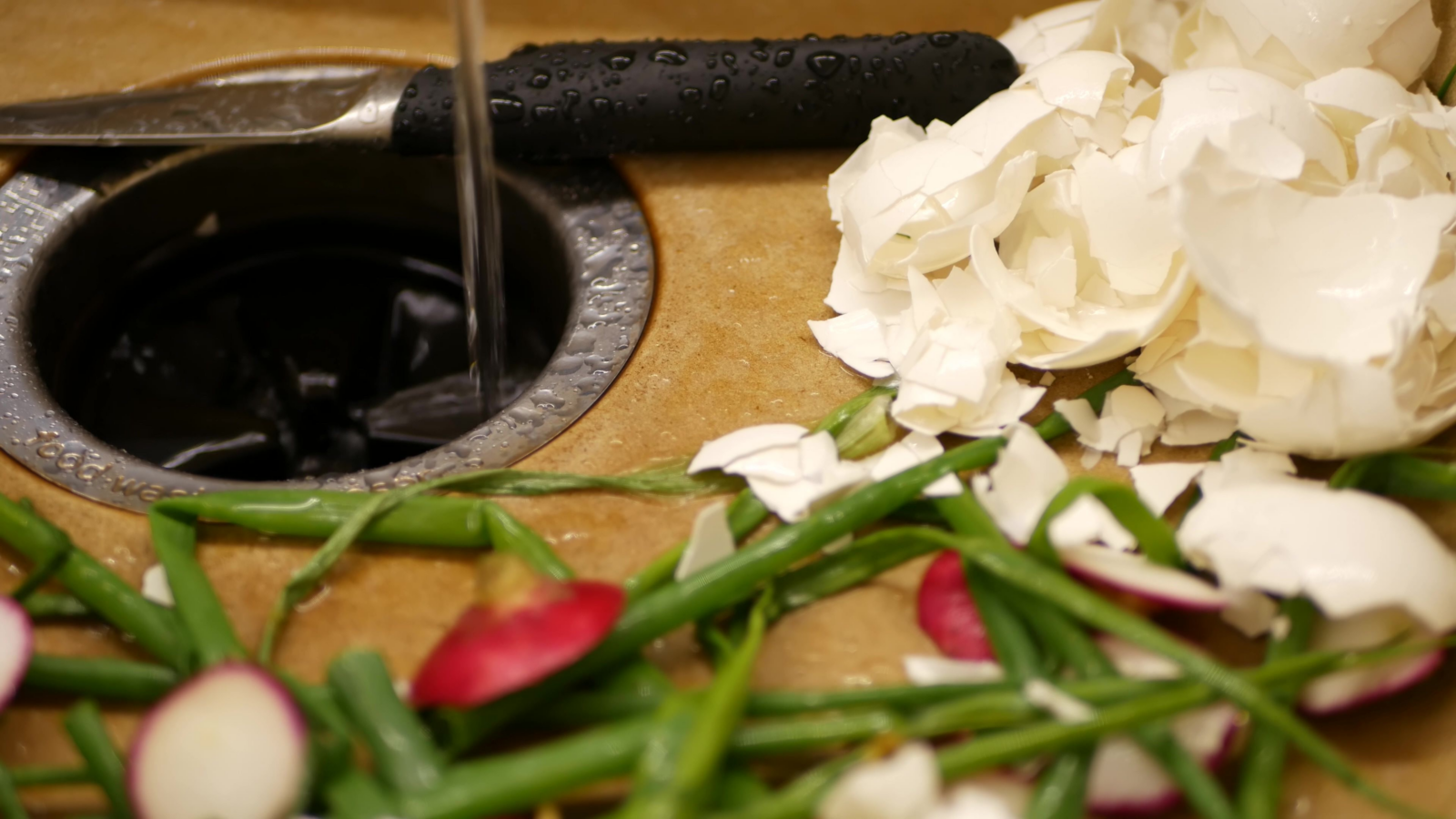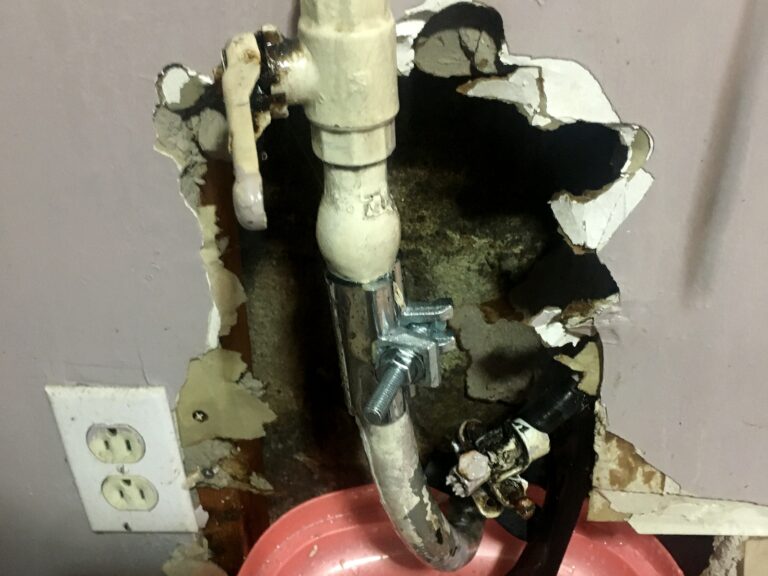As we’ve probably all experienced, a smelly kitchen sink, sink grinder, or smelly drain is an annoyance, and most definitely detracts from a kitchen’s ambiance (to say the least). Working around your kitchen sink, or worse trying to enjoy a meal, with bad and weird smells coming out your kitchen sink can be a bit deflating. Please note that if you have sewer gas smells throughout your home, it is frequently a plumbing fixture trap or a main house trap issue.
With that having been said, why not watch a quick video, or read our in-depth article to learn how to quickly and easily get rid of your smelly kitchen sink issue.
We’ll also explore this same issue that is encountered with sink grinders. We will also provide effective solutions to help you cure a smelly kitchen sink, and sink grinder, and restore freshness to your once smelly kitchen sink and surrounding area.
Why Do Kitchen Sinks Get Smelly? The 6 Primary Causes
Before we deep dive into smelly sink solutions, we should explain to you the root causes of smelly sinks and grinders. Unpleasant odors can plague your kitchen sink, and ruin the ambiance of your entire kitchen, and the surrounding areas as well. Several factors contribute to this issue, let’s discuss 6 of them:
- Food Residue and Organic Matter: One of the primary reasons for smelly kitchen sinks is the accumulation of food residue and organic matter, such as fat and grease, in the sink drain and pipes. When these substances decompose, bacteria form, they release foul odors, and make your sink stink. As a side note, in some commercial drain line systems that accept a large amount of FOG (fat, oil, and grease) a grease trap is required by code to limit the amount of FOG entering the public sewer system.
- Bacterial Growth: The dark and damp environment inside the sink drain and pipes is a perfect breeding ground for bacteria. Some of the bacteria that tend to grow inside a kitchen sink produce sulfur compounds, which are notorious for their unpleasant smell. Sulfur smells duplicate the same unpleasant smell of rotten eggs.
- Trapped Food Debris: Over time, debris like food particles, grease, and soap scum can become trapped in the drain or pipe. These food particles can create blockages, and cause water to stagnate as well. Stagnant water can emit unpleasant odors, as well as food debris exposed to a source of water.
- Improper Plumbing Installation: Poorly installed plumbing or traps can also contribute to smelly kitchen sinks. These installations might not allow water to flow smoothly or could trap odorous items in your drain system. One primary cause of this condition is if pipes are not installed with pitch, this is known as backpitched pipes. Needless to say, proper pitch on runs of pipe is a vital component for a drain system to function properly.
- Hard Potable Water Containing Minerals: If you have hard water (typically well water), mineral deposits can accumulate on the interior of your pipes. These same mineral deposits can trap bacteria and organic matter, which exacerbates the bad odor issue inside your drain system.
- Lack of Regular Use: Ironically, and contrary to what you’d think, lack of use can also lead to smelly sinks. If you have a secondary sink or disposal that isn’t used frequently, the trap under the sink dries out and you lose the water gap that prevents smells and gases from escaping from out of the sink. If unused, stagnant water and debris can allow bacteria to grow, or build up, causing odors as well.

The 4 Reasons That Sink Grinders (Food Waste Disposals) Get Smelly
Kitchen sink grinders, also known as garbage disposals, can be a convenient addition to your kitchen, but they are not immune to smelly odors either. Several factors contribute to the unpleasant smells from sink grinders, what follows are the 4 most common causes:
- Food Residue Accumulation: Sink grinders are designed to grind and flush food waste down the drain. However, some food particles can still accumulate in the grinding chamber, in the impeller blades, or crevices of the unit, which leads to odors.
- Bacterial Growth: Similar to standard kitchen sinks, bacteria can thrive in the moist environment of a sink grinder. These types of bacteria break down food waste and then release odorous byproducts.
- Lack of Maintenance: Neglecting the maintenance of your sink grinder can exacerbate odor problems. Like virtually any working item in your home, without proper cleaning and care, a sink grinder will become more susceptible to odorous build-ups.
- Hard-to-Grind Foods: Certain foods, such as citrus peels, eggshells, and fibrous vegetables, can be challenging for sink grinders to process fully. These can remain in the grinder, rot, and contribute to odors.
Now that we’ve explored the 4 most common reasons behind smelly kitchen sinks and sink grinders, let’s move on to the best ways to cure these odors.

6 Easy & Quick Cures for a Smelly Kitchen Sink
1.Simply Pour Boiling Water Down The Drain
One of the simplest and most effective methods to eliminate kitchen sink odors is by pouring boiling water down the drain. Frequently simply using boiling water can help dissolve and flush away oil, grease, food particles, and bacteria. Carefully boil water in a pot or a kettle or on the stove-top, then pour it directly down the drain. If you repeat this simple process regularly you’ll prevent future odor issues.
2. The Use of Baking Soda and Vinegar
Many folks already know that baking soda mixed with vinegar is a “dynamic duo” for cleaning, unclogging, and deodorizing your kitchen sink. You simply start by pouring half a cup of baking soda down the drain, followed by likewise half a cup of white vinegar. Then quickly cover the drain to keep the gases formed under pressure.
Remember to always allow this mixture of vinegar and baking soda to sit for a few minutes. This allows it to create a gas and foaming action, which helps break down debris and neutralize odors. You should complete and finish this process by flushing the drain with hot water. You can use this method regularly to maintain a fresh-smelling sink in any area of your home.
3. Use Lemon, Lime, or Orange Citrus Peels
Using citrus peels, such as those from lemons, limes, or oranges, can provide a natural and pleasant fragrance while helping to clean your sink. Drop the peels into the disposal or grind them, allowing the oils and natural cleaning properties to work their magic. Follow up with plenty of cold water to flush the grinder thoroughly. Citrus peels can be combined with ice cubes for even better results.
4. Ice Cubes mixed with some Table or Rock Salt
Ice cubes and salt can help clean and sharpen the blades in your sink grinder. Drop a handful of ice cubes down the disposal, and add a few tablespoons of salt. Turn on the grinder, and the abrasive action of the ice and salt will help remove debris from the blades. Follow up with water to flush away the residue. As stated above, add some citrus peels for an even better result.
5. Commercial Drain Cleaners
There are various commercial sink and drain cleaners available on the market. Most of these commercial products contain powerful enzymes and chemicals designed to break down organic matter, and also eliminate odors. Be sure to follow the manufacturer’s instructions when using these products, as some may require you to avoid using the sink for a certain period. Try to avoid drain cleaning products that have acid as an active ingredient.
6. Clean the Sink Drain Stopper
The sink drain stopper and sink strainer can also accumulate food particles, hair, grease, debris, etc. that contribute to odors. These two sink items are a common cause of a smelly kitchen sink, but among the easiest to cure. Simply remove the stopper and clean it thoroughly, ensuring there is no food residue or particles trapped in or around it. Regularly removing and cleaning the drain stopper can help prevent odor issues in any sink in your house plumbing.
5 Easy Cures for a Smelly Kitchen Sink Grinder
- Ice Cubes and Citrus Peels
Using ice cubes and citrus peels in your sink grinder can be particularly effective, as they act in unison as a deodorizer and an abrasive cleaner. Drop ice cubes and citrus peels into the disposal and turn it on. Using ice cubes helps to remove debris from the grinding chamber and the impeller blades as well. While the citrus peels add a fresh scent.
- Vinegar and Baking Soda
As with regular kitchen sinks, vinegar mixed with baking soda can work wonders for sink grinders. Pour half a cup of baking soda followed by half a cup of white vinegar into the grinder. Then let the mixture sit for a few minutes to foam and break down debris. Finish by running hot or cold water to flush the grinder thoroughly.
- Commercial Disposal Cleaner
There are specific disposal cleaner products available in the market that are formulated to target odors and grime in sink grinders. Just as with any product, follow the manufacturer’s instructions when using any commercial cleaner, as each may vary in application and usage.
- Grind Hard-to-Grind Items Acts As A Cleaner & Deodorizer
Occasionally grinding hard-to-grind foods items, such as citrus peels or ice cubes can help keep your disposal cleaner and less prone to odors. Items such as ice cubes can help clean the grinding chamber and blades, while also adding a nice fresh scent.
- Regular Maintenance of Your Sink Grinder
Having routine or regular and consistent maintenance is a big key to preventing odors in sink grinders. Be sure to run the grinder regularly, even if it’s just to grind a few ice cubes or citrus peels. Additionally, keep it clean and free from accumulated debris to reduce the likelihood of unpleasant odors forming.
A Conclusion About Smelly Kitchen Sinks & Food Grinders
A smelly kitchen sink or sink grinder can be a nuisance and can affect the ambiance of your entire kitchen area. However, it’s a problem that can be addressed quickly, inexpensively, and effectively with the right DIY techniques.
Once you understand the underlying causes of these odors, such as food residue, bacterial growth, and lack of maintenance, you’re on the way to finding a correct solution. By following the tips and methods outlined above.
Of course, if you reside in the New York City area, consider contacting the Balkan Drain Team for any drain needs you may have that require professional assistance. If more serious issues arise with our water supply line or house sewer, contact Balkan Sewer And Water Main, NYC’s largest and most trusted service.





